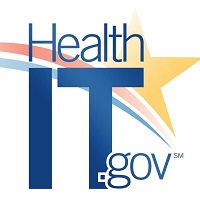 To Support Clinical Care, Research, and Improved Outcomes
To Support Clinical Care, Research, and Improved Outcomes
The U.S. Department of Health and Human Services’ (HHS) (@HHSGov) Office of the National Coordinator for Health Information Technology (ONC) (@ONC_HealthIT) announced four awards totaling more than $2.7 million under the Leading Edge Acceleration Projects in Health Information Technology (LEAP in Health IT) funding opportunity. The LEAP in Health IT awardees will address fast-emerging challenges in interoperable health information technology (health IT), thus advancing opportunities for the adoption and use of health IT standards across the health care ecosystem.
The four new LEAP in Health IT awardees will address development and testing for data sharing functionalities to support clinical care, research, and improved outcomes. The 2020 special emphasis notice for LEAP in Health IT solicited applications focused on three areas of interest: (1) advancing registry infrastructure for a modern application programming interface-based health IT ecosystem; (2) cutting edge health IT tools for scaling health research; and (3) integrating healthcare and human services data to support improved outcomes.
“The LEAP program was created to bring future-focused outcomes closer to the present. This third cohort will inform the implementation and refinement of standards, methods, and innovative techniques to create breakthroughs in how we approach health care and research,” said Steve Posnack, deputy national coordinator for health IT.
The 2020 awardees are:
Area 1: Chesapeake Regional Information System for our Patients, Inc. (CRISP) – Development and Testing Data Sharing Functionality for Health System Participating in the National Cardiovascular Disease Registries of the American College of Cardiology
- CRISP, in partnership with the American College of Cardiology (ACC), will advance the health IT ecosystem through the accelerated adoption of modern standards – such as FHIR – both in the acquisition of clinical data for registry submission as well as the subsequent use of clinical data to improve care decisions.
Area 2: MedStar Health Research Institute – FHIR Factories: An Evolving Digital Architecture to Scale Health Research
- MedStar, with their collaborators from Georgetown University’s Innovation Center for Biomedical Informatics (ICBI), the American College of Emergency Physicians (ACEP), HealthLab, and Asymmetrik, aims to better understand the current state of open source, health IT tools. Specifically, the proposed project will demonstrate use of individual bulk FHIR data extraction to support needed research functionality.
Area 2: Children’s Hospital Corporation – Cumulus: A Universal Research Sidecar for a SMART Learning Healthcare System
- The Children’s Hospital Corporation in collaboration with Yale University and Yale-New Haven Health, will develop a FHIR-based platform that leverages bulk data to support an ecosystem for research and learning. Tools to be developed and tested will allow users to annotate FHIR-bulk data for analytics, de-identify data, and query cohorts.
Area 3: Missouri Department of Mental Health (DMH), Division of Developmental Disabilities – Integrating Standardized Data to Advance Person-Centered Planning, Outcomes, and Value Based Payment Models Project
- The Missouri Department of Mental Health (DMH), Division of Developmental Disabilities (DD), in partnership with their stakeholders, will help DMH/DD advance their value-based payment (VBP) model with foundational technical infrastructure that will integrate structured components to support person-centered planning, reporting, population health, and data sharing across health care and home and community based services (HCBS) providers for individuals with intellectual and developmental disabilities, while testing and adopting the electronic long-term services and support (eLTSS) standard.
